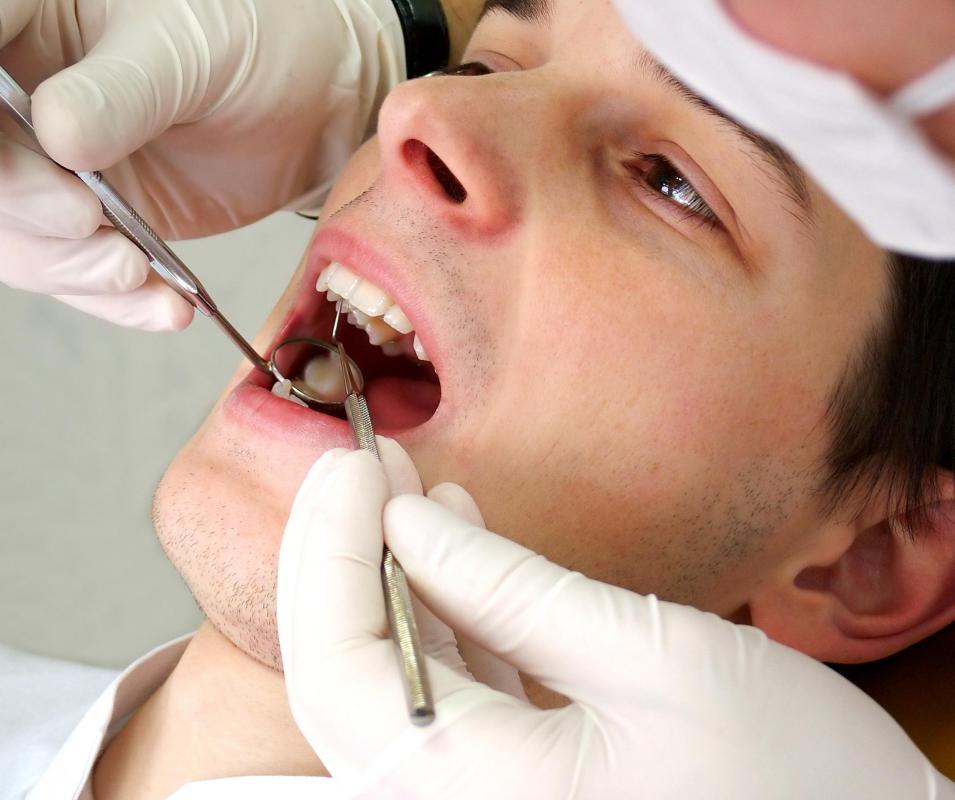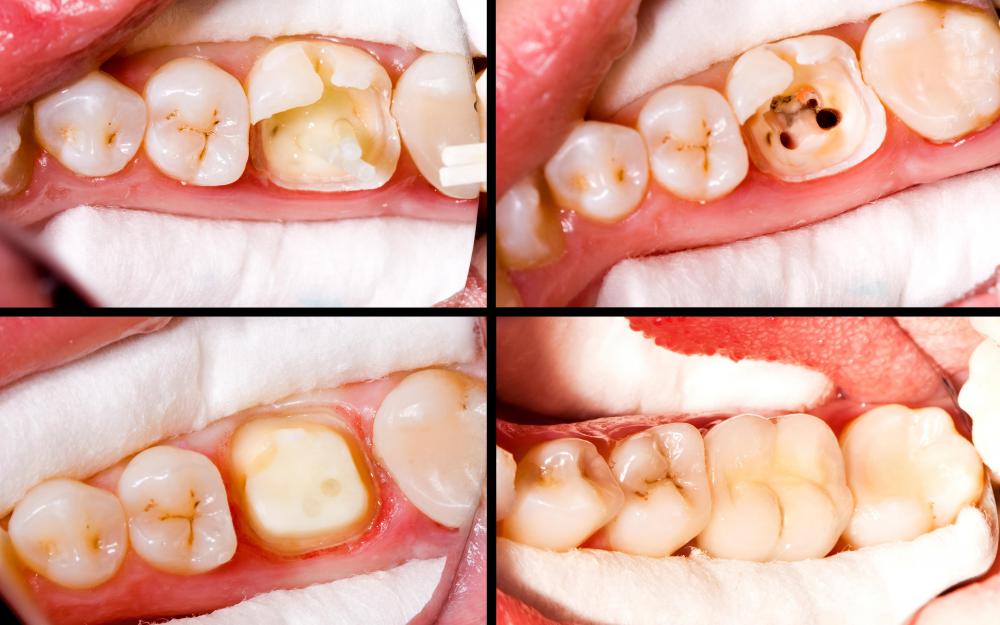At WiseGEEK, we're committed to delivering accurate, trustworthy information. Our expert-authored content is rigorously fact-checked and sourced from credible authorities. Discover how we uphold the highest standards in providing you with reliable knowledge.
What is Dental Erosion?
Dental erosion is a permanent loss of all or part of a tooth due to the gradual chemical breakdown of the tooth. This breakdown is triggered by the introduction of some type of acid to the surface of the tooth. When regular dental hygiene is not practiced, the acid gradually wears away at first the enamel coating the exterior of the tooth, then advances to begin breaking down the dentin that makes up the main body of the tooth. Unlike many health issues, dental erosion cannot be reversed. The only solutions are to halt the erosion and use modern techniques to rebuild the damaged area of the tooth, or to replace the tooth altogether.
The single most common origin of dental erosion has to do with the types of foods and beverages that are consumed. Many of these substances contain amounts of acid that will begin to eat away at tooth enamel if allowed to linger on the surface. Some people are surprised to learn that fruit juices can do a great deal of damage to the teeth. In like manner, carbonated drinks also contain enough acid to cause damage. Dental enamel erosion can also be triggered by the components found in most wines.

Regurgitating stomach acids can also lead to the erosion of dental enamel. In situations where the individual is unable to hold down food, the process of regurgitation brings up not only the remnants of food but also some of the gastric acids that are used to break down food once it reaches the stomach. Those acids can cling to the surface of the teeth and begin the process of dental erosion.

A third trigger for dental erosion has to do with pool water. The chlorine used to keep the water in pools clean can have a devastating effect on tooth enamel. While it is highly unlikely that anyone consciously drinks pool water, most people do manage to get some amount of the chlorinated liquid in their mouth when diving or swimming around in the pool. Over time, constant exposure to the chlorine will weaken enamel and begin to degrade the dentin underneath.

There are two ways to tell if dental erosion is taking place. First, the appearance of the teeth will change. Instead of a healthy white, the teeth will begin to take on a dull white appearance that eventually takes on a yellow hue. At the same time, the teeth become more sensitive to hot and cold liquids. As the enamel weakens, the opportunity for cavities and other dental issues to develop increases.

Unfortunately, there is no dental erosion treatment that will reverse the course of the erosion. Usually, the best that can be done is to stop the process at its current level and use various strategies to replace or rebuild damaged teeth. This often involves procedures such as the installation of fillings or even replacing sections of the teeth with partial plates.

Minimizing the chances for dental erosion to develop begin with the development of good dental hygiene habits. Brushing the teeth after a meal or snack is very important to remove excess acids from the teeth. Using a mouth rinse or mouthwash regularly will also help to keep the surface of the teeth relatively free from degradation. Flossing regularly will remove acid residue that can become trapped between teeth. Your dentist can help you make informed choices as to the type of toothbrush that is best for your situation, as well as recommend the type of toothpaste, floss, and mouthwash that would be right for you.
AS FEATURED ON:
AS FEATURED ON:
















Discuss this Article
Post your comments